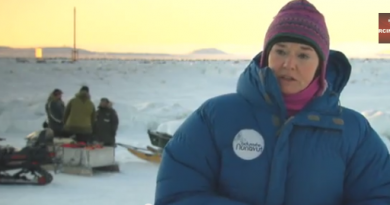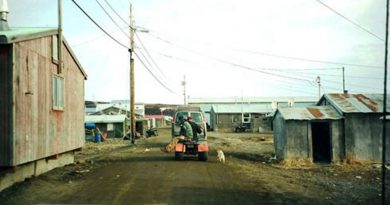Land-based healing, education projects in Yukon among Arctic Inspiration Prize finalists
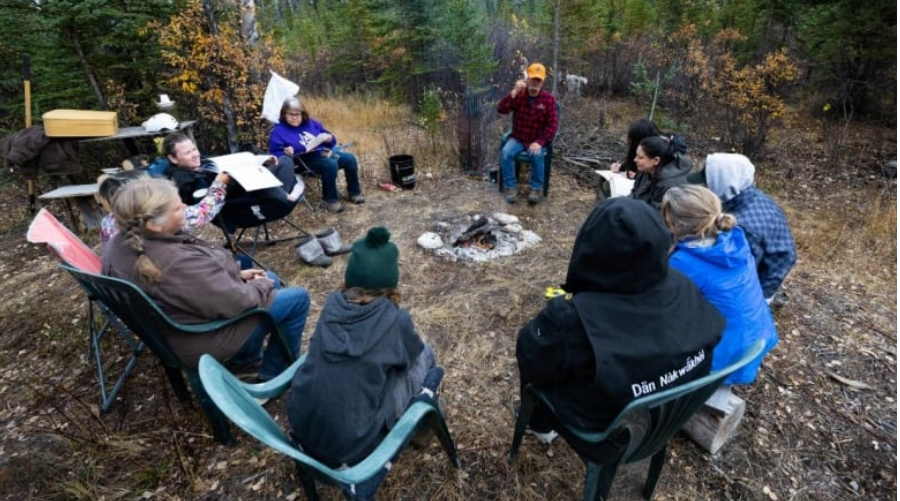
Two Yukon projects focused on land-based education and healing are in the running for this year’s lucrative Arctic Inspiration Prize.
Eight finalists were announced earlier this month, for prizes totalling up to $3 million. There are three categories ranging from a $1-million prize, another worth up to $500,000, and a third for youth projects, which can win up to $100,000.
The Arctic Inspiration Prize website says the awards fund projects that are “by the North, for the North,” and address the immediate needs of northerners and their communities.
Yukon’s Shäwthän Näzhì project is a finalist for the prize worth up to $500,000. It’s a land-based healing camp focused on intergenerational trauma.
And the N”tsaÜw Chu’ Kedts’edán Kù Traditional Camp at Whitehorse’s Porter Creek Secondary School is a finalist in the youth category. The project aims to build a traditional camp on the school grounds, to be used for cultural programming.
Diane Strand, one of the leaders of the Shäwthän Näzhì project in Haines Junction, says that project is meant to fill a gap in First Nations recovery support in Yukon.
“There’s many people that leave the Yukon to go for treatment,” she said.
“There’s no aftercare treatment program per se, here in the Yukon. There’s nothing really defined. Some people come home with some incredible support from family and friends or from their First Nation, but in essence there is really not much out there.”
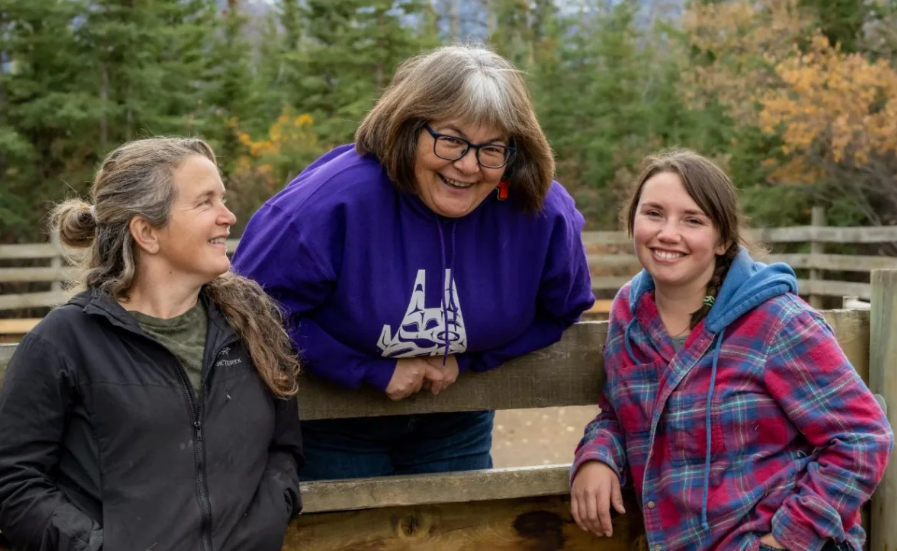
Shäwthän Näzhì was launched as a pilot program two years ago, focused on intergenerational trauma. Now it’s been established as a non-profit society in partnership with the Council of Yukon First Nations (CYFN) and the goal is to broaden programming and train up to 30 more mental wellness staff.
“We will develop and create a recovery support program, looking at the best practices from across Canada,” Strand said.
Training mental wellness staff will “ensure that we get some longevity to the program and to develop capacity here in the Yukon,” Strand said.
Programming will be based at Heart Haven Farm near Haines Junction. Strand says the initial plan is to launch a year-long program for 12 participants who will be selected with help from CYFN. They’ll come spend time at the farm once a month, where they can access counsellors, therapists, and elders.
“That’s our key piece, that you’re out on the land. And it’s been known that being out on the land and being within your own environment is what is going to be successful,” Strand said.
“We’re hoping that this is going to take off and we are hoping that other communities, not just Haines Junction but other places, will be able to draw upon what we’ve learned and be able to take it back to their communities and develop their own programs… that is our end goal.”
‘We just snowballed into this great idea’
The N”tsaÜw Chu’ Kedts’edán Kù Traditional Camp is also aiming to fill a gap — by making Porter Creek Secondary School the only school in Whitehorse with infrastructure to offer in-depth cultural programming.
“The idea just kind of came about in some conversations and I pulled some youth together and then we just snowballed into this great idea — and here we are,” said Olive Morland, who’s with the Yukon First Nation Education Directorate and is leading the project.
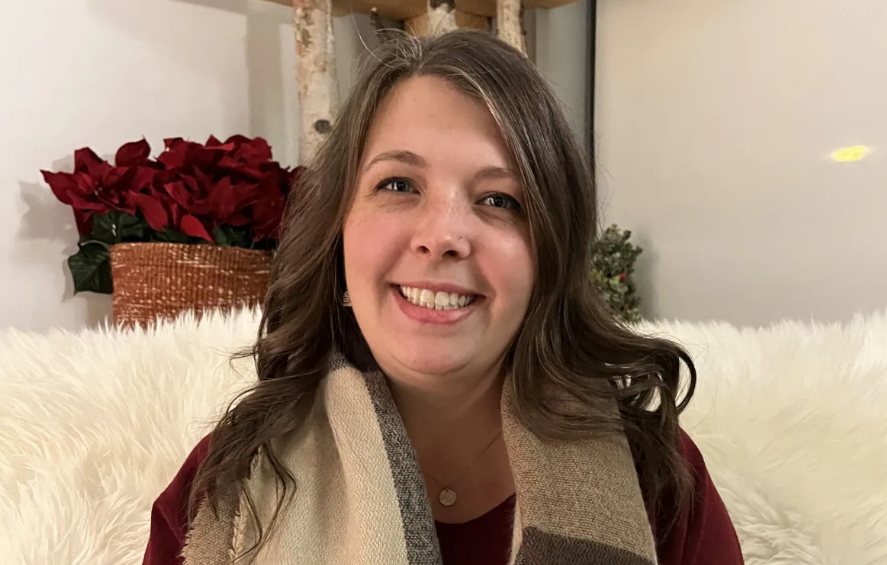
The plan is to build a permanent outdoor camp on the school grounds, with a fire pit with seating for 100 people, and a kitchen building suitable for traditional food preparation. That will make it easier to get students out of the classroom, learning some traditional skills.
“I think it’s been proven that students can succeed outside. And having the opportunity to have it right there on the campus, you know, just takes away a lot of the stress for teachers trying to get students out on the land,” said Morland.
Nicole Cross, acting principal at Porter Creek Secondary School, said the school has been organizing hide camps in recent years, where students learn about preparing and tanning hides. She says they’ve been a huge success, so this project is looking to build on that.
“Part of having those hide camps is recognizing that there is a need for us to have the structures in place to be able to host that in continuum — and so that’s the driving force behind having this,” Cross said.
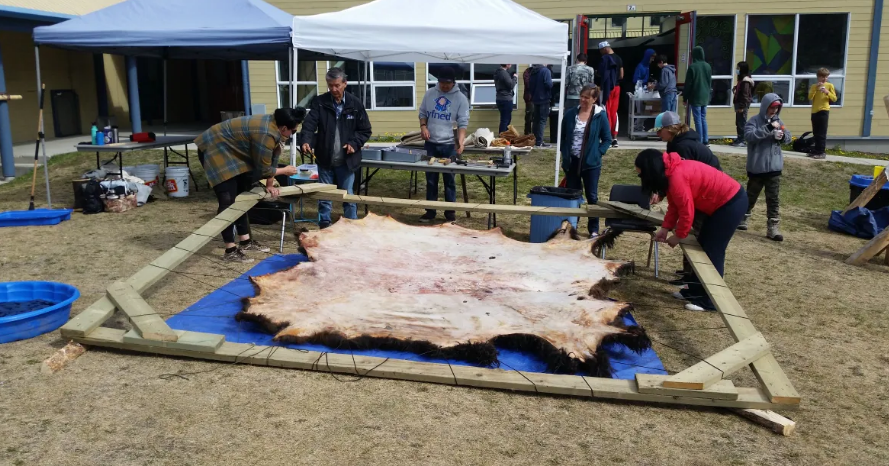
Morland says the hide camps involve a lot of work just to set up and take down.
“So having the option of having something that is there long term, that they don’t have to set up every morning, just takes a little bit of stress away and makes the camp a little bit more accessible for everybody,” she said.
“[Educators] can focus on the actual camp rather than set-up.”
A national selection committee is set go over the Arctic Inspiration Prize finalists and choose the winners. They’ll be announced in Ottawa in February.
Related stories from around the North:
Canada: Honorary degree caps a career spent preserving, promoting, Dene culture, language, CBC News
Finland: Sami Parliament in Finland agrees more time needed for Truth and Reconciliation Commission preparation, Eye on the Arctic
Greenland: Danish PM apologizes to Greenlanders taken to Denmark as children in 1950s, Eye on the Arctic
Norway: Can cross-border cooperation help decolonize Sami-language education, Eye on the Arctic

